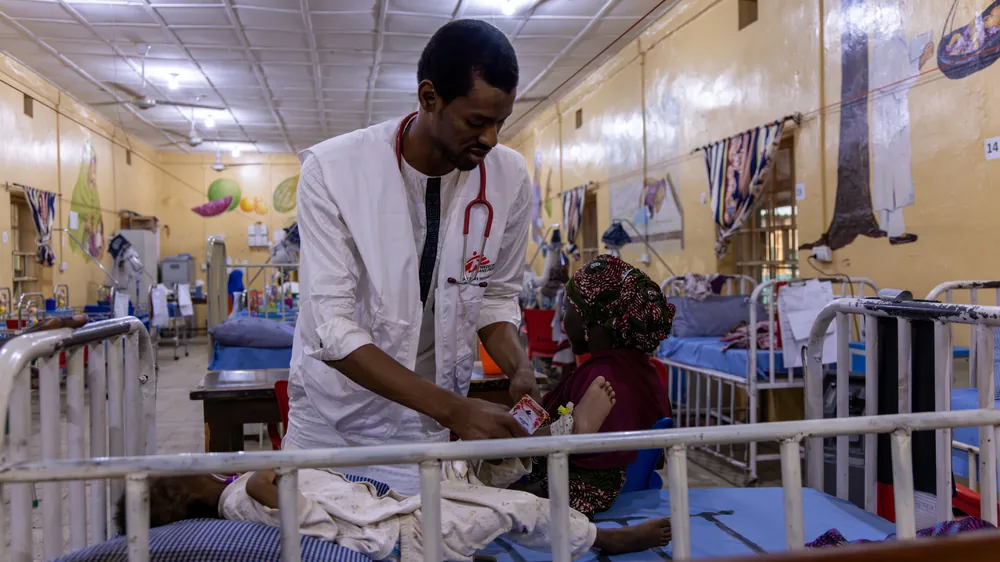
The United Nations World Food Programme (WFP) will shut half of its clinics in Nigeria’s conflict-hit northeast this month.
- The WFP will close half of its clinics in Nigeria’s northeast due to insufficient donor support.
- Over 300,000 children under two face losing access to lifesaving nutrition treatment.
- The WFP urgently appeals for $130 million in funding to support its programs through 2025.
The United Nations World Food Programme (WFP) will shut half of its clinics in Nigeria’s conflict-hit northeast this month, as dwindling donor support forces the agency to scale back humanitarian operations.
With more than 150 WFP-supported nutrition clinics in Borno and Yobe states set to close if funding is not renewed, over 300,000 children under the age of two will lose access to potential lifesaving treatment.
“This is no longer just a humanitarian crisis,” said WFP Country Director David Stevenson. “It’s a growing threat to regional stability as families pushed beyond their limits are left with nowhere to turn.”
DON’T MISS THIS: 10 African countries most exposed to Trump’s health aid cuts
Despite urgent appeals for $130 million to sustain its programs through 2025, the WFP said it has received no funding to continue food and nutrition assistance for 1.3 million people.
Nigeria is facing a deepening food crisis, with a record 31 million people experiencing food insecurity, according to the UN. The situation is particularly dire in the insurgency-ravaged northeast, where nearly 20% of the population is grappling with acute hunger.
Foreign aid freeze hits
In recent months, the United Nations World Food Programme (WFP) has been forced to scale back food rations to Nigeria as U.S. funding dries up. The sharp cuts are a direct consequence of President Donald Trump’s renewed push to slash foreign aid under his “America First” agenda.
An executive order signed on January 20, 2025, imposed a 90-day freeze on all U.S. foreign development assistance, triggering an immediate halt to countless aid programs worldwide.
On January 20, 2025, an executive order put a 90-day hold on all US foreign development assistance, leading to the widespread suspension of aid programs. Till today, the United States still insists on drastically reducing the amount of aid sent to other countries.
DON’T MISS THIS: List of African countries affected by Trump’s new tariffs
The Nigerian Ministry of Health has not outlined how it plans to address the impending gap. This year, the federal government allocated a mere $326,000 to combat malnutrition and stunting in the most affected states, a figure widely seen as grossly inadequate given the scale of the crisis.
Humanitarian agencies across Africa are reeling from a sharp decline in foreign aid, exacerbated by the US under President Donald Trump, which has been slashing overseas assistance.
European nations, too, are redirecting resources inward to meet domestic priorities, leaving countries like Nigeria vulnerable.
In July, Doctors Without Borders warned of a deadly surge in child malnutrition in northern Nigeria, directly linked to the precipitous drop in foreign funding.












